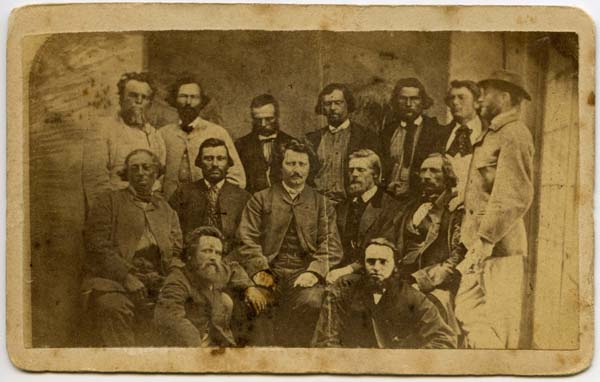“Louis Riel must be smiling.”
That was the front-page headline of the Winnipeg Free Press on March 9, 2013. It’s taken from the response of the head of the Manitoba Métis Federation to the ruling by the Supreme Court of Canada released the day before that the Canadian and Manitoba governments abrogated their responsibilities to respect land rights won by the Métis people when the province was established in 1870.
Louis Riel was one of the leaders of the Métis people during the latter half of the 19th century. They are the people of mixed European/Indigenous ancestry in western Canada.
According to the Manitoba Act of 1870, the children of then-Métis residents were to receive some 1.4 million acres of land. That would have given them a head start during the rush for prime agricultural land marking the anglo, colonial-settler expansion into western Canada following the founding of Canada in 1867. Instead, governments delayed or acted dishonorably, effectively disenfranchising the Métis claim.
Of the app. 7,000 Métis children in 1870, 1,000 got nothing and 6,000 received disparate pieces of land. Sooner or later, many lost the land through swindling or coercion. They and their descendants became victims of deepgoing national, language (most Métis were French speaking) and other forms of discrimination at the hands of Canada’s economic elite and its governments.
The Supreme Court ruling does not prescribe a remedy. Indeed, it was not asked to do so by the Métis. They wanted a favorable ruling with which they could then negotiate land and financial settlements. It now behooves the federal and provincial governments to negotiate with the Métis. Time will tell if and how that will occur.
There are considerable economic interests at stake, including projected hydro-electricity lines that Manitoba Hydro wants to construct across disputed land for export markets in the U.S.
Most of the land that was supposed to be distributed to the Métis is within or adjacent to present-day Winnipeg. There are an estimated 52,000 people of Métis descent in the province today. Across western Canada, the Métis number several hundred thousand.
This is the second major legal victory for Métis in recent months. In January, the Supreme Court ruled that Ottawa has an obligation to grant constitutional recognition to the estimated 600,000 Métis and “non-status” Indians in the country. The decision opens a door to negotiation or legal action for access to health care, education and other benefits that Ottawa restricts to Aboriginal people with “official” status under the Indian Act (ie to those Aboriginal peoples that signed treaties).
Louis Riel
The Manitoba Act was negotiated by Louis Riel, president of a provisional government in the Red River Settlement (also known as Assiniboia), the land surrounding present-day Winnipeg. The Provisional Government of Assiniboia was formed in 1869 to resist the unbridled expansion of settlement into western Canada being driven by capitalist interests in the east.
Following the signing of the Manitoba Act in 1870, the personal safety of members of the provisional government, especially of Riel, became precarious. He was obliged to flee several times across the border to the U.S., notwithstanding his popularity and his later election (by acclamation) to the Canadian Parliament in 1873. That election and a second one that produced the same result were annulled by Ottawa.
Riel began a five-year exile from Canada in 1875 under an amnesty agreement by then Prime Minister John A. MacDonald. He served part of it discretely in Quebec and ended up settling in Montana in 1878. There, he became active in the Republican Party (the party that led the anti-slavery side of the 1861-65 U.S. civil war) and became a naturalized U.S. citizen in 1883.
Riel returned to western Canada in 1884 at the urging of the Métis to assist the second rebellion of Métis in the vast territory that later became Saskatchewan and Alberta. This time they were allied with Aboriginal peoples. The uprising’s principal military commander was Gabriel Dumont. It was defeated by the Canadian military and Riel was captured and executed in Regina, Saskatchewan on November 16, 1885.
Since 2008, Riel is honored each year in Manitoba on Louis Riel Day, a general provincial holiday on the third Monday of February. A statue of him sits on the grounds of the Manitoba Legislature.
In Ottawa, a resolution recognizing Riel as the founder of Manitoba and defender of Métis rights was proposed to Parliament by the Conservative government of Prime Minister Brian Mulroney and approved on March 11, 1992. But it did not include a pardon for his 1885 conviction for treason. Several legislative initiatives since then to reverse the conviction have failed.
The life of Louis Riel has been extensively documented and debated by historians. One biography of him can be read online here.



